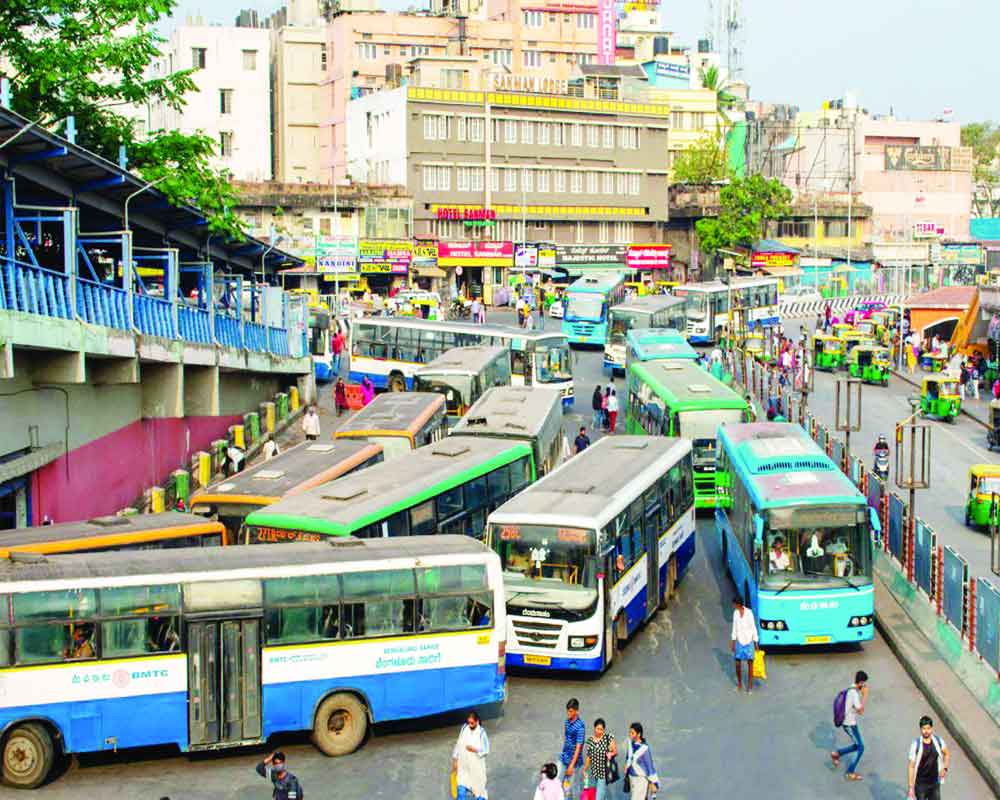India must incorporate the needs of excluded communities to ensure all have access to affordable transportation
Tackling transportation-related greenhouse gas emissions is an urgent priority in India’s ambition to achieve net zero. Globally, passenger road vehicles are the largest contributor to mobility emissions. In India, about 14% of the total emissions are mobility-linked, however, this may change as car ownership is expected to increase by 9-14-fold by 2050. To curtail the projected increase in emissions, it is essential that we not only adopt electrified modes of transport but also consider reduced private vehicle usage by switching to alternative modes, such as public transportation.
In recent years, there has been a renewed interest in building high-quality public transportation infrastructure in the country, especially metro rail systems (Metro). Decoding social barriers
Apart from systemic barriers, such as poor infrastructure for persons with disabilities, senior citizens and caregivers, several social barriers prevent people from using the Metro. By decoding these through a behavioural science approach, i.e. understanding the heuristics (mental shortcuts individuals use to make decisions) and using behavioural nudges (subtle cues designed to influence people's behaviour), we can impact urban mobility choices.
Firstly, people think that first and last-mile connectivity is a ‘high effort’ and an ‘unpleasant experience’ due to long distances, poorly lit routes, and encroached walking paths. However, it is worth noting that memories of such unpleasant experiences may be recalled more easily and are often stressed by other people's descriptions. Secondly, non-Metro users prefer personal vehicles due to factors like connectivity, security queues, waiting time, and navigation challenges. Two behavioural biases play a role here: (a) people often choose personal cars over public transportation due to the ‘illusion of control’ over the route and the time taken to reach the destination, and (b) they often use hyperbolic discounting - prioritising short-term benefits like the comfort and convenience of private vehicles over long-term collective benefits like reducing emissions
Thirdly, personal vehicles are seen as status symbols, whereas the Metro is not aspirational.
Enabling equitable access for excluded communities
Beyond enabling a shift from private vehicles, improving the quality and service of sustainable mobility modes, like public transportation, has wider societal benefits. According to the 2011 Census, only 16% of Indians use private vehicles as their primary mode of commute; 54% of the population uses public transit or non-motorised modes such as walking or cycling. However, investments in road infrastructure have generally been accorded primacy over investments in public transportation, walking and cycling infrastructure. This has resulted in limited provision of public transportation infrastructure, poor access for many communities and concerns about quality, comfort and safety. New investments in public transport services, like e-buses and metro rail, must address concerns of the urban poor to improve their access to opportunities .
Beyond a technological approach
Currently, Indian policy strongly promotes the advancement of public transportation in cities such as the National Urban Transportation Policy and the Metro Rail Policy, outlining the pathways for financing, building, operating and maintaining accessible public transportation services. However, social planning, especially the promotion of behavioural and normative shifts, is lacking. Social planning for transportation can improve user demand by understanding values, attitudes and beliefs that frame people’s modal choices.
(Ashali is Senior Urban Planner and Ronika Postaria is, Research Associate at, Ashoka University; views expressed are personal)


























